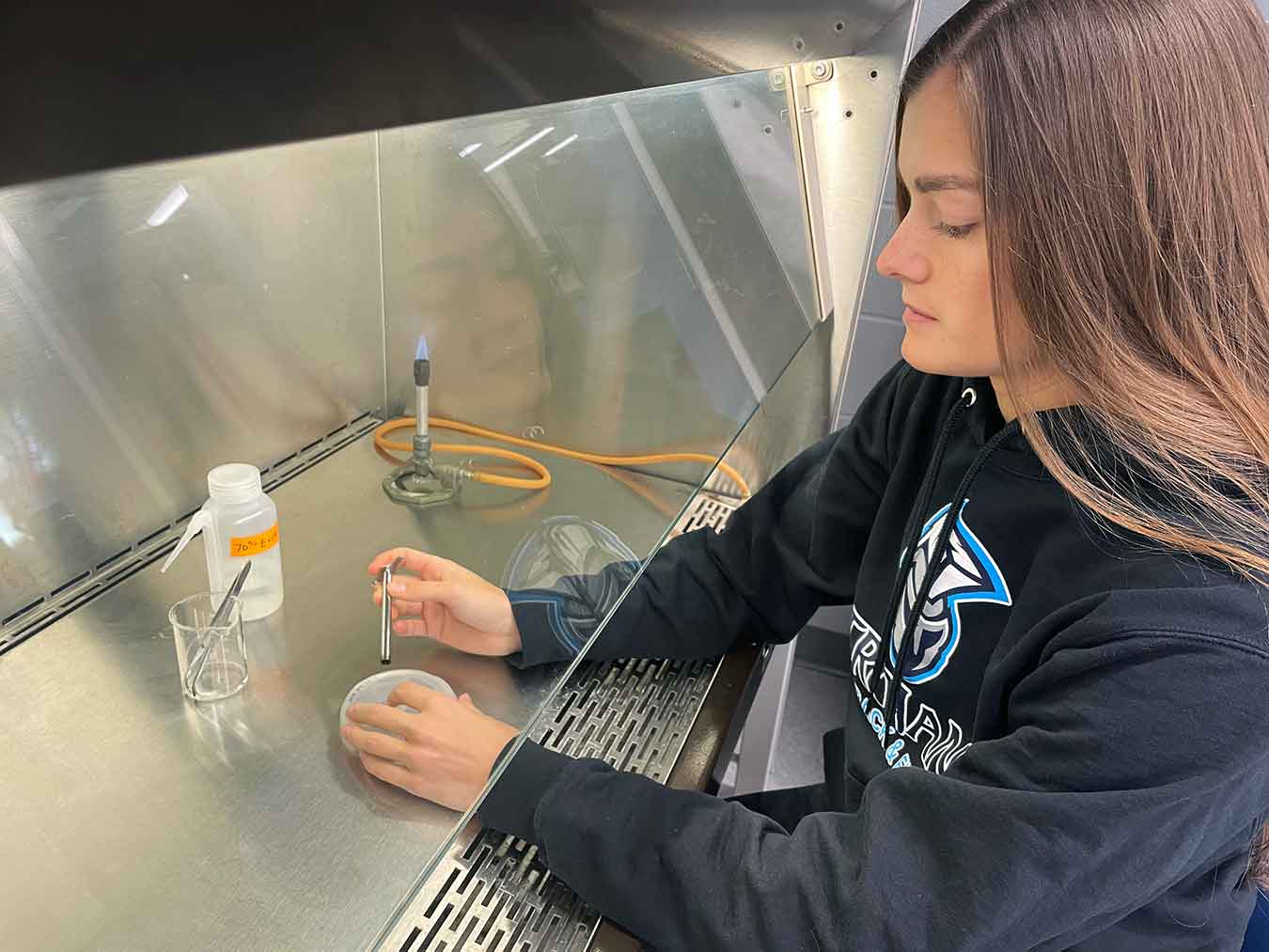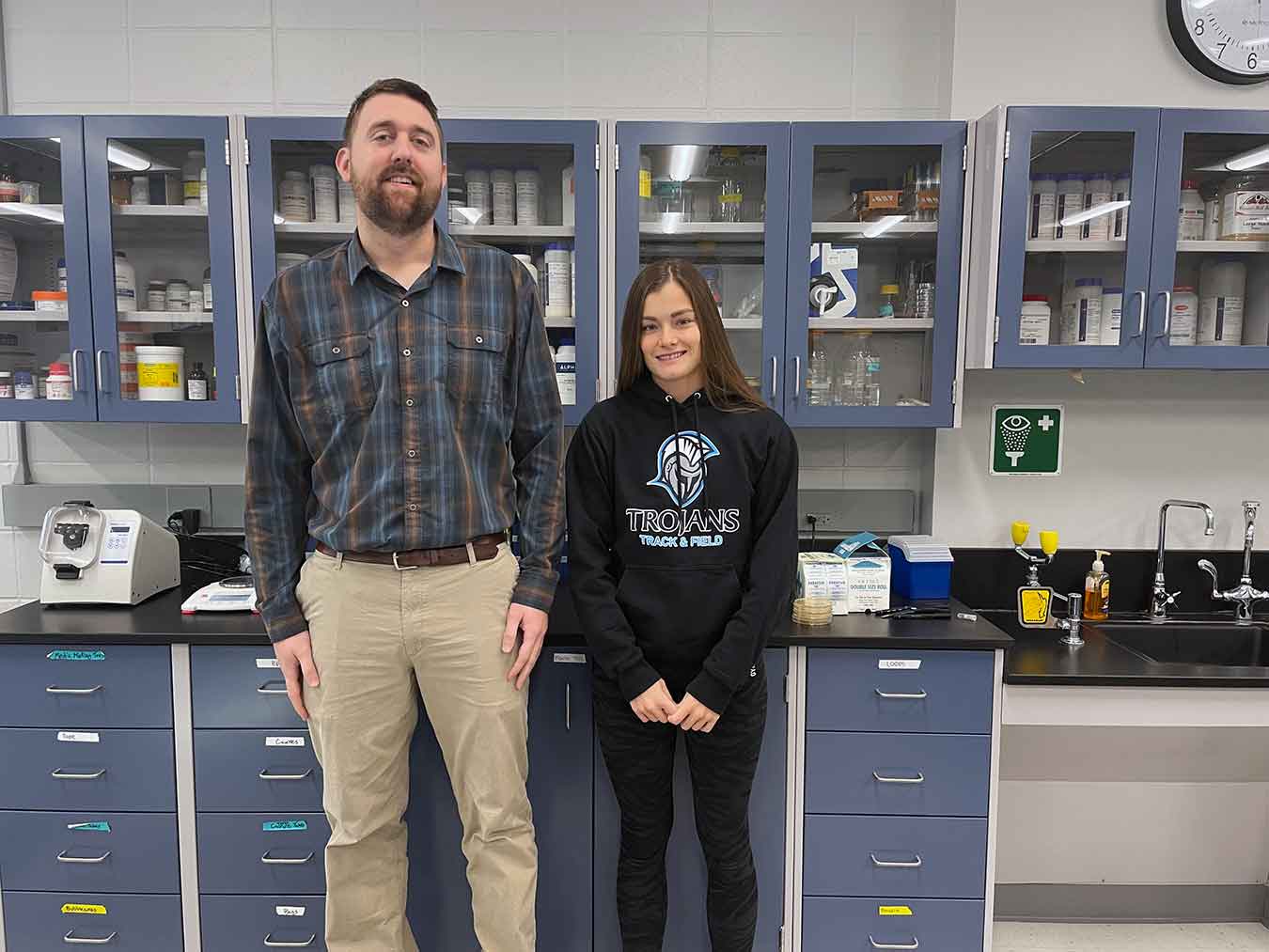Understanding alfalfa
November 29, 2021

Jenni Giles works in the biology lab.
What started as a summer research project has evolved into a multi-year study of alfalfa for undergraduate Jenni Giles.
“All of the research projects I have done at DSU with alfalfa have led into each other,” she said. “Alfalfa diseases are very understudied in South Dakota, so one project does not answer all our questions.”
Giles, a senior biology major from Madison, SD, began studying alfalfa with Dr. Andrew Sathoff and fellow student Conner Tordsen in the summer of 2020. The team partnered with Mustang Seeds to research Aphanomyces (alfalfa root rot) in South Dakota fields.
“My research at DSU has always focused on alfalfa pathogens; however, each project so far focuses on different pathogens that affect alfalfa stand and longevity in different ways,” she said.

Dr. Andrew Sathoff (left) is mentoring Jenni Giles through her alfalfa research.
This year she received her second Student Research Initiative (SRI) grant to continue research on Pythium, an alfalfa pathogen, in South Dakota soils.
To complete her project, she will be finding out what species of Pythium are found in fields in the state, and which species cause disease symptoms in alfalfa. To find this information, Giles must rate alfalfa seedlings of different varieties against the different Pythium species isolated from the soil.
The goal is to learn which Pythium species are found in alfalfa fields in South Dakota, she said. They also hope to learn whether different varieties sold from seed companies like Mustang Seeds show stronger resistance to these isolated Pythium species.
Giles enjoys being able to share this information with others. “Our results are relayed back to the farmers, so they can use our research to better their fields and yields. I have attended several Mustang Seeds events where we explained our research to farmers, and they were usually very interested and find the information to be valuable. Seeing this interaction firsthand has inspired me to continue with alfalfa research over my time at Dakota State.”
Sathoff has served as her mentor throughout her research at DSU. He’s watched her evolve as a researcher while providing support through time management, helping her develop her writing skills, and remaining available for questions every day.
She’s developed confidence in her lab skills, now performing complex molecular biology techniques efficiently and without error. “When she visited GMD Seeds on a job shadowing experience that I arranged this summer, they wanted to hire her as a research technician,” Sathoff said.
GMD is a large international agricultural/soybean company centered in Argentina. Jenni, along with fellow researchers, visited a GDM soybean breeding facility in Hutchinson, MN.
Beyond her lab skills, her scientific writing has improved, and she writes at the level of a graduate student, he explained.
Another way she has been able to share information is through an Aphanomyces Fact Sheet published in collaboration with South Dakota State University Extension Services.
“Jenni is the first author on this publication because she took ownership of the project,” Sathoff said. “She adopted a different style of writing to effectively communicate with extension agents and alfalfa growers, which is not an easy task.”
Over the past few years, Sathoff has seen Giles develop technical skills, persistence, critical thinking, and presentation skills.
“She presented her research this summer at Plant Health 2021, the top plant pathology conference in the world, and her presentation didn’t seem out of place even though it was included among a group of presentations from professional scientists and graduate students.”
